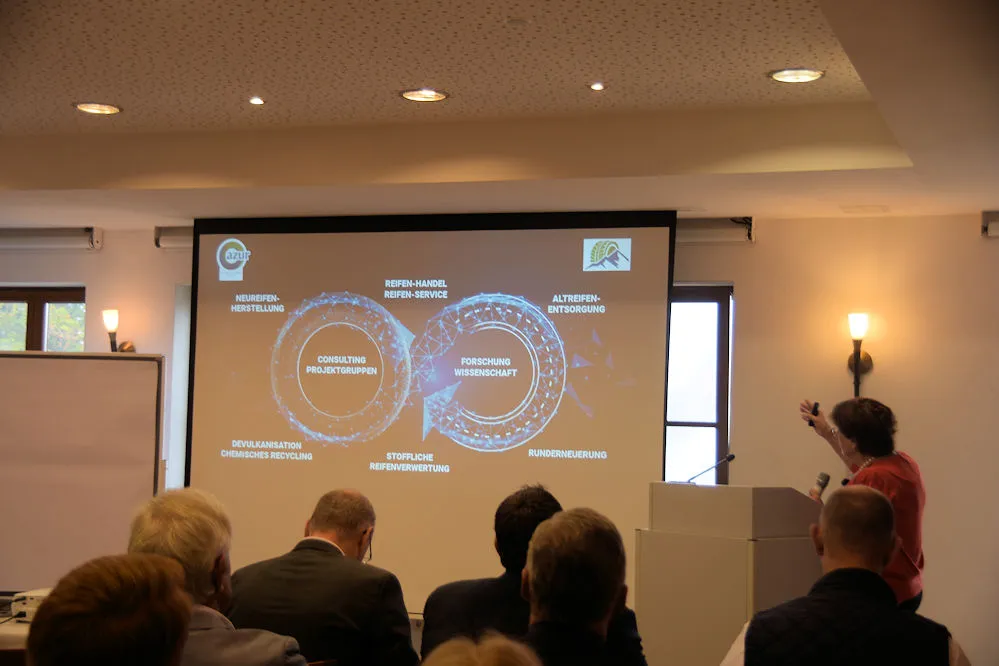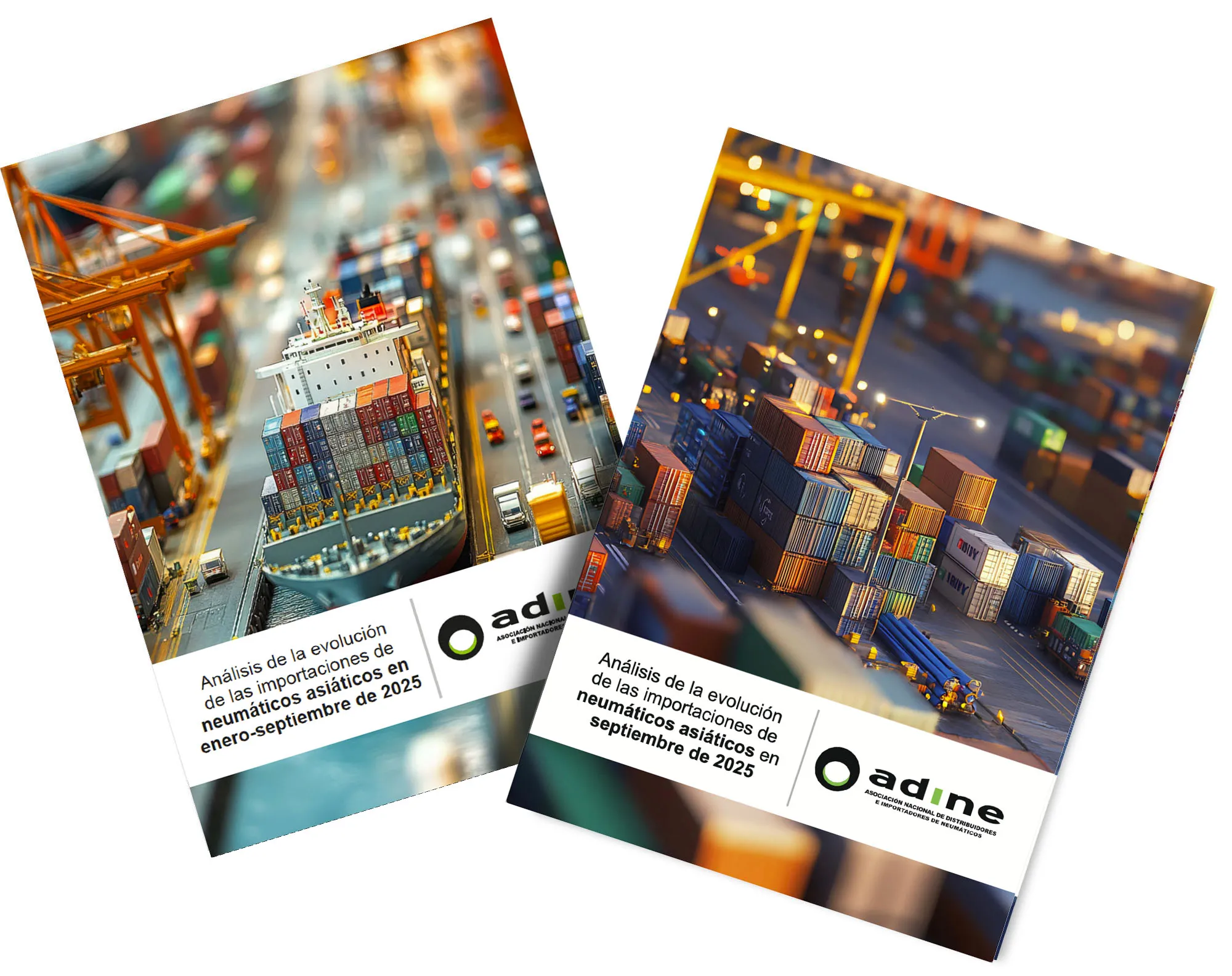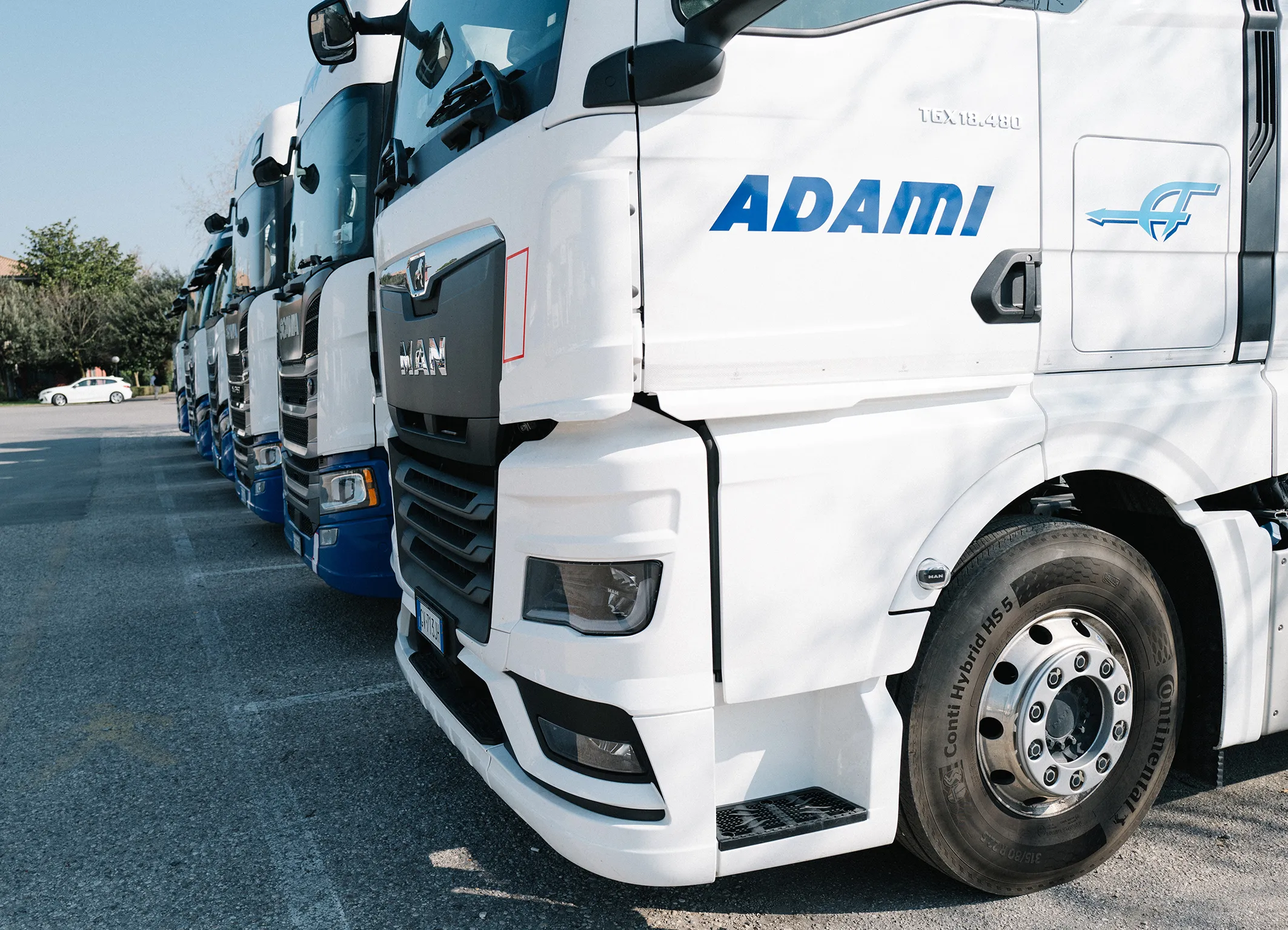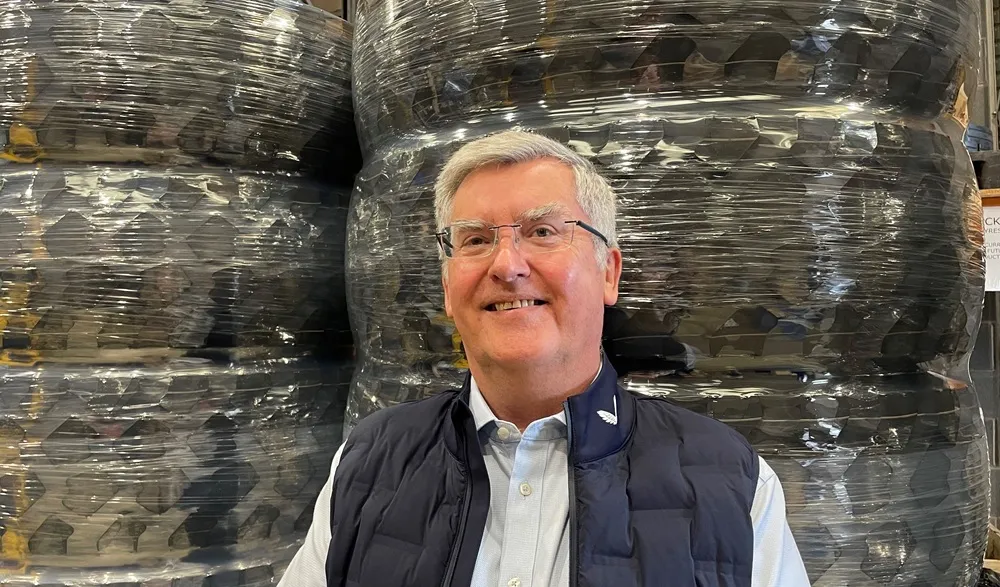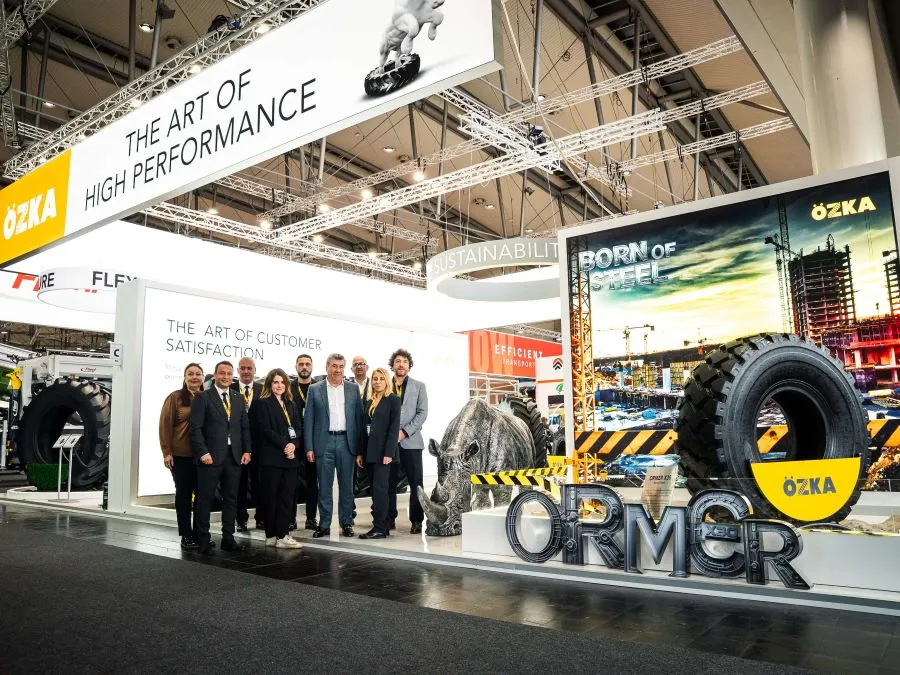AZuR, Germany’s tyre recycling lobby group held a Retreading Forum at Günzberg to discuss the way forward for retreading
German Retreaders look to a positive future
The event was very much a networking opportunity for the leading retreaders in the country who have come to understand that the future of the sector relies in co-operation to build a better industry.
The discussion and presentations focused on the use of AI and automation to ensure the highest quality end products. This high quality retread product has come about after a consolidation of the market that has seen the number of retreaders in Germany reduced considerably.
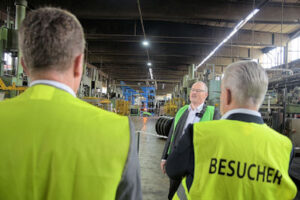
In a recent article, Commercial Tyre Business highlighted that the heart of the tyre, the casing, is common to both new and retreaded tyres. The process of building rubber on the casing and moulding it to create a new tyre or retread is virtually identical – the mould cure process is almost indistinguishable from the new tyre moulding process. Pre-cure cold-retreading is a little different, but the bonding of the tread to the casing creates that complete unit of a retreaded tyre.
The AZuR event included a trip to RIGDON, one of Germany’s foremost retreaders. There, Managing Director, Gunther Ihle, outlined what he saw as the future for tyre retreading, using AI and automation to create the most efficiently built and highest quality retreaded tyres possible.
Positivity about the future
The event gave an overall positive feel about the future. Though much depended upon how government supported the industry.
AZuR had put together some demands of government based around dealing with tyre dumping, managing waste, and seeking mandatory use of retreads on municipal fleets, amongst other points.
As always, discussion between delegates revealed that the import of cheap tyres from the Far East remained a challenge, and there was a demand that the government, in Berlin, but more importantly, in Brussels, act to prevent dumping in Europe. However good a retread tyre might be, the consumer still considered it a poor relation to the new tyre, regardless of that new tyre’s provenance.
That was another challenge that the delegates felt needed addressing. Christina Guth asked what could be done to deal with that image question. An on-the-spot survey suggested a general agreement that there needed to be better, more co-ordinated publicity about the quality and use of retreaded tyres.
There also needed to be more attention to helping fleets access and use retread tyres through ensuring that there was better understanding of the quality, performance and mileage to be had from retreads. Work had to be done to deal with the lack of acceptance in the market – that was the biggest barrier to growth felt the delegates in the survey.
There needed to be a better education programme to help fleet operators understand the quality and the benefits of using retreaded tyres. Unfortunately, the spectre of low quality products that had seeped into the market in the past had left a huge barrier to boosting the retread sector.
There was still a misconception that every truck tread lying at the side of the road was the result of a poor quality retread, when, in fact, it was just as likely to have come from an overloaded new tyre that has overheated and delaminated.
Asked how to deal with this lack of understanding, the delegates responded that there needed to be better publicity, improved information campaigns, and more lobbying on behalf of the industry. This was something that retreaders themselves needed to do, but they also asked AZuR to co-ordinate much of this work on their behalf.
It was pointed out that Germany has amongst the highest volume of municipal vehicles in Europe. Amongst them were thousands of garbage trucks. It was argued that a garbage truck did not need new tyres, it could operate perfectly well on retreads, and there were no speed related risks. Why then did the government not mandate the use of retreads on garbage trucks and other municipal vehicles?
Why is government so slow to act?

The European, Federal and State governments talked about the circular economy and the Green Deal, yet here was one option that saved oil and energy, and cut back on CO2 emissions, and extended the life of what is a high cost item to fleet operators, yet governments did little to support the industry.
Retreaders were also constantly fighting a battle against cheap tyres from the Far East. Though there was some hope that EUDR might help hold back that flood.
The key points concerning the retreaders were put to MEP Markus Ferber. In particular, the issues around the dumping of tyres in Europe. Ferber was quick to point out that it was against the law for any goods to be imported into Europe and sold at below production costs. He argued that on that point there had to be action taken.
When asked about a funding programme to help rebuild the market and develop technologies, Ferber responded as any politician does.
AZuR and the retreading sector in Germany have some work to do to rebuild the market, but from this conference it was clear that the will to drive forward was present, those who had survived the past 10 years were now looking to a more positive future and the opportunity to build a better, sustainable and environmentally friendly industry.

